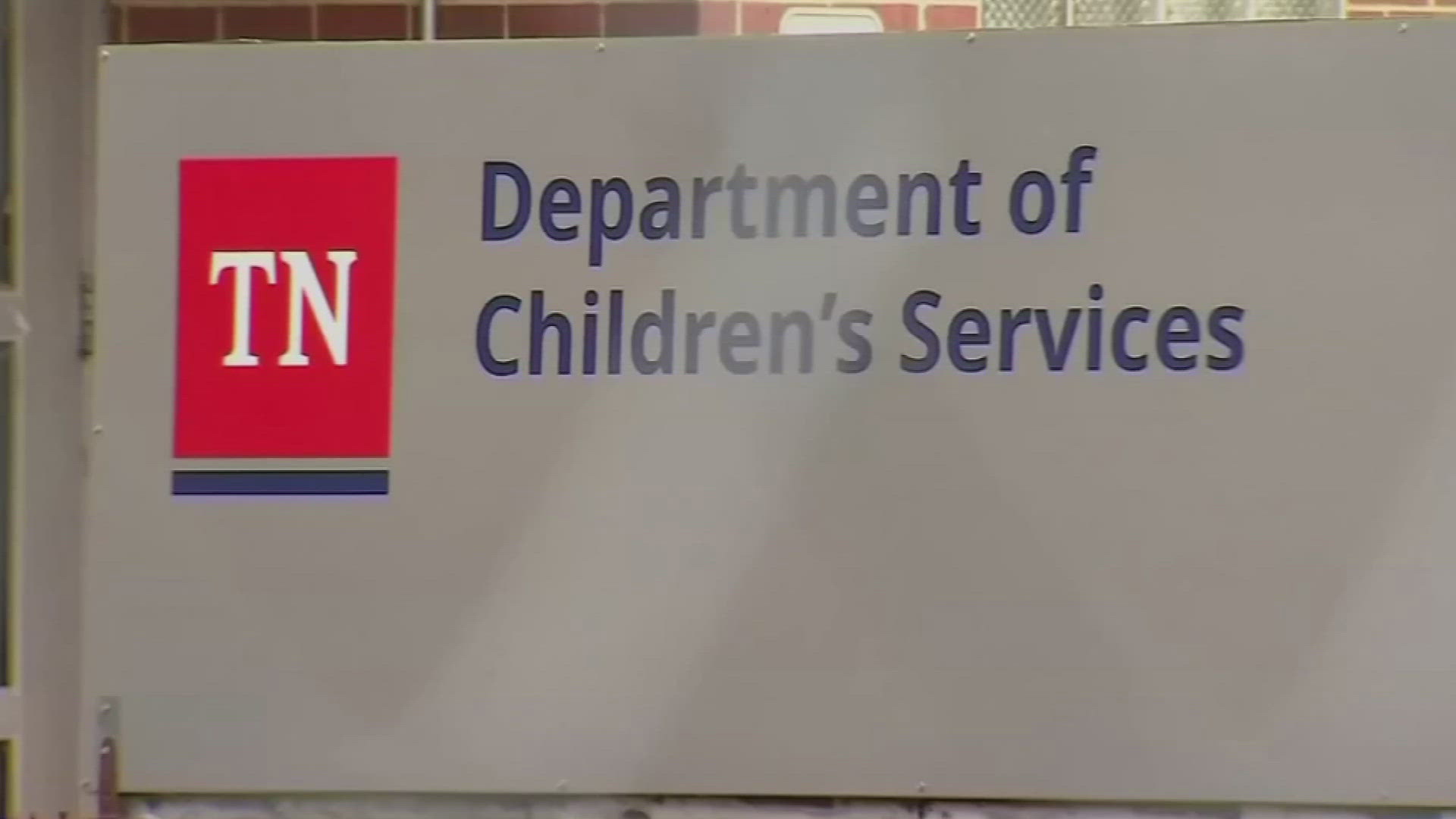NASHVILLE, Tenn. — More than 200 children in state custody are now in facilities across the country after the Tennessee Department of Children’s Services said it doesn’t have the proper resources to care for them.
The department said it had to expand its placement network to serve kids with “complex needs.”
In a budget meeting on Wednesday, the department showed two charts to illustrate that over the past four years, the demand for the department’s most costly services has increased steadily while the use of its least costly services has declined.
Frank Mix said overall, the total number of children in state care has been around the same over the last few years. During a presentation to a panel and to Governor Bill Lee, he said the cost of caring for those children has increased.
He also said he expects the cost of caring for children in its custody who have complex needs would continue rising.
Since the department is not able to meet that growing need, it said 229 young people were placed with out-of-state providers. There are 15 different states with facilities that fall in the TNDCS provider network including Alabama, Utah, Arizona, Georgia, Pennsylvania, Texas, Ohio, Florida, Virginia, Louisiana, Wyoming, Mississippi, Arkansas, Oklahoma and South Carolina.
"This issue is not necessarily related to a lack of foster homes. Most of these children require care that cannot be provided in a traditional level I foster home setting," the department said.
In Tennessee, there are different levels of each type of care depending on the individual child's needs. More complex cases can include kids who have significant psychiatric needs, neurodevelopmental disorder diagnoses or behavioral treatment. Darci Halfman, the executive director of the Tennessee Alliance for Children and Families, said the department is working to bring kids sent out of state back to Tennessee.
“The hope is that you can get them close to the family and support systems because when they're out of state, the family probably has a hard time getting there and more than likely they don't send the child home that much. So, it does put a fracture in that relationship, I would think for that time being," Halfman said.
The alliance is not a part of the state's Department of Children's Services, but Halfman works with the department and hears about the growing number of kids with complex needs.
“What I kind of hear on a regular basis … tends to be maybe some children with autism but also behavioral problems,” Halfman said. “Behavior is also part of it, that they self-harm, they harm others, those kinds of things. And so that becomes a little troublesome for some of the providers to even be able to manage that kind of behavior.”
She also said she believes part of the decision to send kids out of state is a result of lasting impacts from the COVID-19 pandemic.
“It was hard. It had so many ramifications for more than what we even think about,” Halfman said. “COVID really hit us hard when that came and a lot of folks rethought having people in their homes and what they want to do.”
Without the resources to care for those children in Tennessee, Halfman says “they're kind of in a bind if they don't use those [other states].” Otherwise, she said kids would need to sleep on office floors.
She said the department needed to send them out of state while it works to get residential beds and services. She also said treatment at that complexity is usually temporary.
“That should be very short term. Not necessarily triage, but they're not going to stay in those settings for very long,” Halfman said. “One, they're costly. Two, it doesn't work to keep kids in those kinds of settings that long. So once they complete their treatment, you want to be able to step them down into a therapeutic foster home.”
That’s why she said there’s a large need for therapeutic foster homes here in the state. She said with more therapeutic foster homes, children sent out of state could return to Tennessee's Level 3 and Level 4 facilities.
Those types of placements are similar to traditional Level 1 foster homes, Halfman said, although with more training for the foster parents along with routine home studies and provider check-ins.
But as it currently stands, Halfman said the need across the state outweighs the resources available. As of September of this year, there are currently about 9,000 children in foster care throughout the state of Tennessee.
"Some children are placed out of state simply due to capacity limitations in Tennessee. Others are placed out of state because their complex needs can't be met here. There is also limited capacity in out-of-state systems, so our youth need to be spread out based on their needs and the available capacity in other systems," the department said in an email.
In the recent budget meeting, Mix stressed the urgency of addressing this growing need.
“None of that accounts for the shift in the population: more kids being served at higher levels of care,” he said. “So there's a trend that's been occurring over the last several budget cycles where our residential placement budget has become unbalanced and it's exponentially growing over time. And I expect it will continue to do that if we don't correct this.”
The department said it’s “actively working to recruit additional providers to Tennessee.” It also has developed a DCS Real Estate Plan, which it said would create additional capacity in Tennessee and reduce the need to send children out of state.
That plan will use $19 million to start designing two new juvenile justice centers. It also said $88 million would go to building nine new intake facilities and assessment centers across the state.

